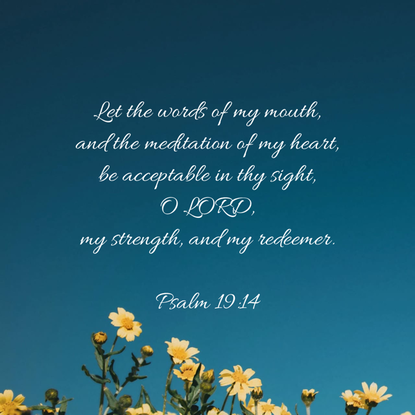|
Good morning!
We're so glad you decided to join us today!
We will not be meeting in person for Sunday School for the next two weeks.
Next week, the VBS program will be held in the sanctuary during the Sunday School hour. The following week, we will be at the fairgrounds at 10 am for the worship service at the fair.
When we meet in person, we take time to share our joys and concerns. Take some time to consider how your last week has been. If you have any prayer requests to share, please add them to this post as a comment. When you are ready, use the prayer below (source) to get started.
God, we’re so grateful to be able to meet here together and be in your presence today.
We know it’s a gift. Help us never lose sight of that. While we’re here together studying Your Word we ask that You’d open our ears and our hearts to whatever it is You are wanting to teach us. Help us to see things through Your eyes and not the lens of our own understanding. We want to know You more, God. Thank you for showing us who You are and helping us understand and walk in Your love. What we learn today we want to act on. Don’t let it become mere head knowledge. Shape our minds, hearts, and actions according to Your word. Show us how to honor you and love others well with what we learn. In Jesus’ name, Amen.
This week's lesson is on Matthew 13:44-52.
Lesson Context
This week, we will be looking at our third lesson on parables. The first two were stories with a beginning, middle, and end. This week, we will be looking at four very brief parables that are found on in the Gospel of Matthew. They include enough detail to make a point while allowing the reader to imagine other details. We might think of these as similar to a more recent phenomenon called flash fiction. A popular example of such fiction is the six word story. "For sale: baby shoes, never worn." Our book talks about reading the New Testament, and bridging the gap between "the two horizons." The first is the historical context in which the New Testament was written. The second is the modern context in which we as readers stand. We need to understand the first horizon in order to deal with the second. In the ancient world, a person's wealth was recognized by them physically possessing something tangible, like livestock, precious metals, or luxury attire. Wealth could be taken. In order to protect things like precious metals, they would be hidden somewhere. In today's society, we might still think of wealth dealing with tangible items. But it also consists of investments, property, stocks, and things that we can't really hold in our hands. Protecting wealth now has more to do with computers: keeping antivirus software and firewalls up to date, not sharing passwords, and being careful about public wi-fi.
Parable 1: Hidden Treasure
In Jesus' time, it would have been a pretty common practice to bury your money. The field the treasure is found in was a farming plot. It was likely secluded away from other people. We get the idea that the man found the treasure alone, with no witnesses. Jewish law at the time stipulated that if a treasure was lifted from the ground, it would belong to the current owner of the field. The man apparently covered the treasure, hiding it again, so there was nothing illegal about his actions. In order to obtain the treasure, the man had to sell all that he had. This was a risk. He was risking that the treasure was worth more than all his personal wealth. He was also risking at the treasure would still be there after he had made the purchase. The point of the parable is that the kingdom of heaven is of superlative inestimable value. But it requires the commitment of everything for those who would be part of it. When we follow Jesus, the rewards are far greater than what we sacrifice.
Parable 2: Costly Pearl
Pearls are made when a foreign object is trapped within an oyster's shell. The oyster secretes a substance, mother of pearl, to make the sharp fragment smooth and nonirritating. Pearls were seen as a very valuable treasure in the ancient world. A business that involves trading in such a valuable commodity has the potential for great risk and great reward. In this parable, the merchant found one pearl of great value. Like the man with the field in the previous parable, the merchant sold everything he had and bought the pearl. This might have meant everything he had with him if he was traveling. It might have meant liquidating property holdings, or other precious gems he already owned. The point of this parable is similar to the previous one. To enter the kingdom of Heaven requires relinquishing our control over everything. Spiritually, we must give up all our ungodly ways and submit fully to the Lord. Materially, nothing we own can be held back if we are fully committed to serve in the kingdom. Everything becomes the Lord's. This involves a shift of mindset from "I own" to "I am a steward." The treasure we receive is worth it!
Parable 3: Good & Bad Fish
In this third parable, Jesus compare the kingdom of heaven to commercial fishing. His listeners would have been familiar with fishing in the Sea of Galilee. Commercial fishing would have been done with a net that was dragged between two boats. Using a net would have been indiscriminate fishing -- it does not differentiate between species of fish likely to be near the surface and those at a depth. A full net would be too heavy to lift into one of the boats. Instead, the bottom would be lifted to trap the fish. Then, the boats would return to shore, beaching the net full of fish. Once on the beach, the fish would be sorted. Good fish would go to market in baskets. Bad fish would be cast aside. Our book points out that the Law of Moses said only fish with fins and scales were considered clean and could be eaten. This meant eels (no scales), various kind of catfish (no scales), and shellfish (neither scales nor fins) unclean. They had no commercial or personal value. This parable connects with last week's lesson about the weeds among the wheat. In both cases, there is a harvest. The harvest is then sorted. The good part of the harvest is kept, and the bad part of the harvest is discarded. It is all about the harvest at the end of the age, the time of final judgment.
Parable 4: Old & New Treasures
A teacher of the law was a literate person who made copies of Scripture by hand and was an expert in the law. This person is depicted as the owner of a house. In this case, the old treasures are the law of Moses, and the new treasure is Jesus. The owner bringing out his treasures is the sharing of scripture.
Conclusion
Jim Elliot was a missionary to Ecuador, where he was killed in 1956. In his journal in 1949, Elliot wrote, "He is no fool who gives what he cannot keep to gain that which he cannot lose." This speaks to the core point of the parables in today's lesson. To remain dedicated to the kingdom of heaven is a treasure far beyond any material possessions. But its cost is a willingness to give up what we have to follow Jesus.
Prayer
Father, grant us the wisdom to recognize the priceless nature of your kingdom! And give us the courage to yield all that we have for it. We pray in the name of Jesus. Amen.
Questions for Discussion
Benediction
This week's benediction is from the New International Version.
Next week's lesson is on Galatians 5:13-26.
0 Comments
Leave a Reply. |
AuthorWe are a small, rural Presbyterian church in southwestern Pennsylvania. Archives
July 2024
Categories
All
|



 RSS Feed
RSS Feed